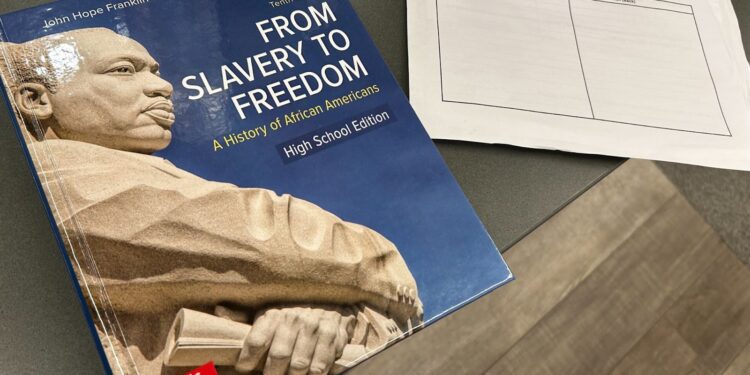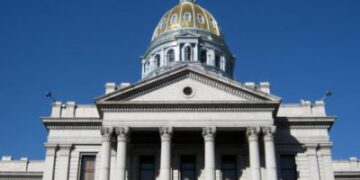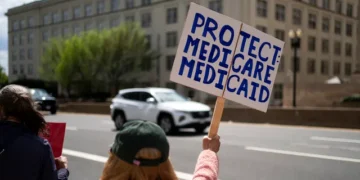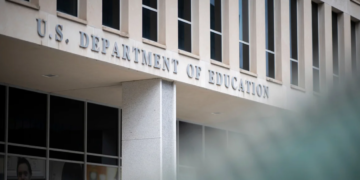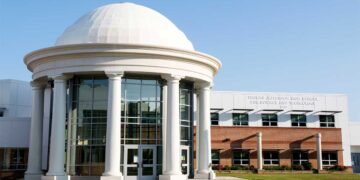In the image caption, “From Slavery to Freedom” textbook delves into the dynamics of an “era of self-help” and the evolving challenges encountered by African Americans throughout history. (WTOP/Scott Gelman) Img source: Wtop.com
May 17, 2024 Story by: Editor
The Advanced Placement African American Studies course promises a deep dive into pivotal historical events and figures like the Tulsa Race Massacre and Colin Kaepernick, as per the College Board’s curriculum. However, while some topics like the Black Lives Matter movement are optional, the core structure remains consistent, spanning four units: “Origins of the Black Diaspora,” “Freedom, Enslavement and Resistance,” “The Practice of Freedom,” and “Movements and Debates.”
Greg Carr, associate professor of Afro-American Studies at Howard University, notes that most alterations occur within the “Movements and Debates” segment, with some experts initially frustrated by omissions like critical race theory.
Controversies have emerged, with figures like Florida Governor Ron DeSantis accusing the course of ideological bias. However, despite critiques, the course continues to expand its reach, with plans for availability in all high schools next academic year, though individual districts will determine its inclusion.
Carr emphasizes the course’s flexibility, particularly evident in student-selected projects and the inclusion of topics like “interlocking systems of oppression” and Afrocentricity. While certain themes like the Black Lives Matter movement and reparations have been excluded from the AP exam, the curriculum maintains breadth, incorporating discussions on feminism and the rationale behind Kaepernick’s protest.
While certain materials have shifted from required to optional, educators like Michael Hunt and Sean Miller anticipate a shift towards thematic teaching, fostering deeper engagement and critical thinking among students. Miller underscores the course’s role in presenting a holistic historical narrative, aiming to empower students to draw their own conclusions and understand the societal impact of their learnings. Source: Wtop.com


